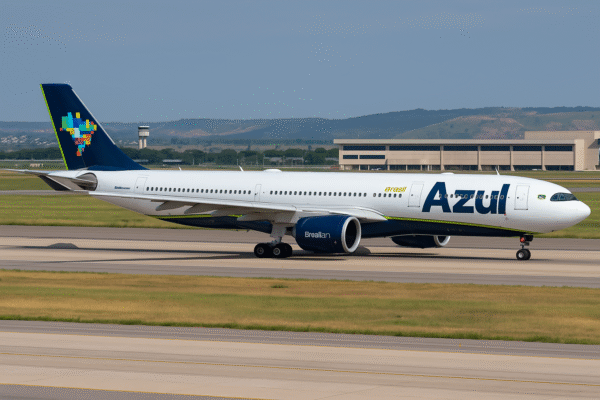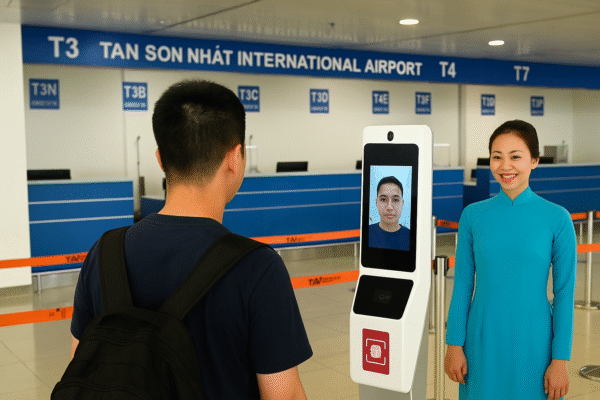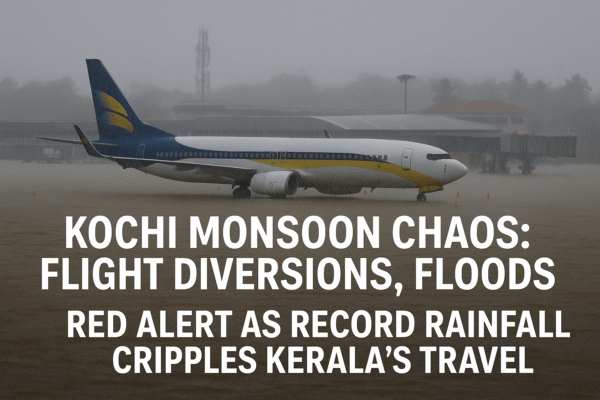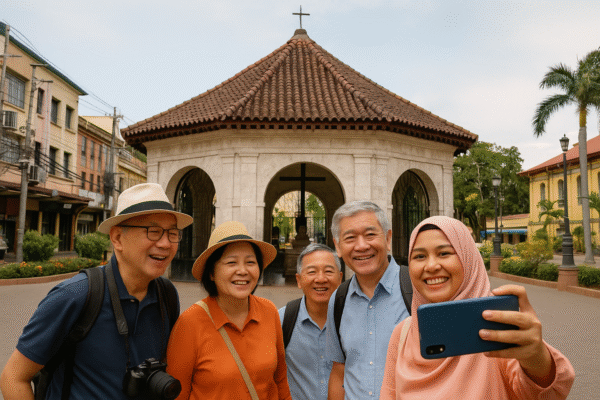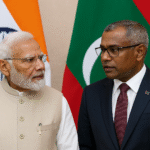Cebu Reinvents Tourism with Direct Flights, Halal Travel, and Digital Innovations to Win Back International Visitors
Cebu, one of the Philippines’ top tourist destinations, is ramping up its efforts to reclaim its footing in the international tourism arena following a significant dip in foreign arrivals, particularly from South Korea. In response to an 18% drop in Korean tourist visits, the provincial government has launched a strategic plan centered on improved air connectivity, Halal tourism development, cultural revitalization, and digital innovation.
At the core of Cebu’s tourism recovery strategy is the push for new direct flights to and from South Korea, its historically strongest international market. Cebu officials emphasized this initiative during the recently concluded 23rd East Asia Inter-Regional Tourism Forum (EATOF), hosted in the province. Discussions are already underway with airline and government stakeholders to reestablish and expand direct routes, which are expected to boost tourist inflow and rejuvenate Cebu’s image as a convenient and desirable destination for Korean travelers.
The urgency comes as nearby countries like Vietnam attract Korean tourists with competitive packages and seamless digital services, including highly integrated mobile payment systems. In contrast, Cebu is still in the process of rolling out these traveler-friendly technologies. “The competition is real. Our neighbors are progressing rapidly. We need to catch up fast,” a provincial tourism official noted.
To address this gap, Cebu is recalibrating its tourism budgets. Part of the ₱200-million allocation for the “Pasigarbo sa Sugbo” cultural festival is now being considered for reallocation toward modernizing cultural exhibitions, upgrading tourist facilities, training personnel, and strengthening both local and international promotional campaigns. Similarly, a portion of the ₱50-million “Suroy-Suroy Sugbo” community-based tourism initiative will be repurposed to fund agile marketing strategies and infrastructure improvements aimed at elevating Cebu’s competitiveness.
A key component of the province’s inclusivity push is the promotion of Halal tourism, an increasingly important segment in the global travel market. Cebu’s provincial government is collaborating with local stakeholders and religious organizations to provide Halal-certified dining options, accommodations, and services that adhere to Islamic principles. The effort is also aligned with the Philippine Department of Tourism’s broader campaign to make the country more welcoming to Muslim travelers, particularly from Southeast Asia and the Middle East.
Shahlimar Hofer Tamano, Undersecretary for Tourism Regulation, Coordination, and Resource Generation, praised Cebu’s Halal initiative, stating, “A more inclusive tourism framework will not only open doors to new markets but also solidify the province’s image as a forward-thinking, globally competitive destination.”
Highlighting the theme of sustainable and community-led tourism, delegates attending the EATOF summit were taken to Bojo River in Aloguinsan, a standout ecotourism site that was awarded the UNWTO Best Tourism Villages Award in 2021. The experience served as a living showcase of how environmental stewardship and cultural preservation can work hand-in-hand to create impactful travel experiences. The site has become a model for rural tourism development across the Philippines.
Building on the momentum of this year’s EATOF, Cebu is also preparing to host the EATOF General Assembly in 2026, where the province aims to present itself as a resilient, culturally rich, and future-ready tourism hub. Cebu is one of 10 member provinces in the forum, which includes regions from countries like Korea, Vietnam, China, and Japan.
The EATOF platform offers Cebu the opportunity to expand bilateral tourism efforts, promote regional visitor exchange programs, and enhance collaboration on sustainable tourism projects. It’s a vital channel through which the province can reassert its leadership role in regional tourism cooperation.
In parallel with local tourism reforms, the national government has launched digital innovations to enhance the travel experience for outbound and returning tourists. The Department of Information and Communications Technology (DICT), in partnership with the Tourism Infrastructure and Enterprise Zone Authority (TIEZA), has rolled out an upgraded eTravel system that now allows passengers to declare and pay travel taxes through the eGovPH Super App and the eTravel portal.
This innovation significantly reduces the need for paperwork and long queues at airports. Travelers can now process their travel tax payments via mobile devices prior to departure, further streamlining the journey. DICT Undersecretary Christine Faye Condez-De Sagon emphasized that the integration represents more than just digital progress—it reflects the government’s commitment to improving travel convenience for all.
TIEZA Chief Operating Officer Mark Lapid added, “Our goal is to reduce friction in the travel process. This digital system not only enhances the user experience but also positions the Philippines as a smart tourism leader in Southeast Asia.”
These combined efforts—enhanced flight access, diversified tourism offerings, digital convenience, and inclusive programming—signal Cebu’s firm commitment to rebuilding a stronger, more resilient tourism industry.
As the province positions itself for recovery and growth, its ability to adapt to global trends while preserving its cultural identity will be crucial in attracting new visitors and welcoming back old ones. Whether through Halal-certified services, seamless digital tax payments, or eco-friendly village tours, Cebu is determined to reassert its place as one of Asia’s most dynamic and welcoming destinations.
For more travel news like this, keep reading Global Travel Wire












